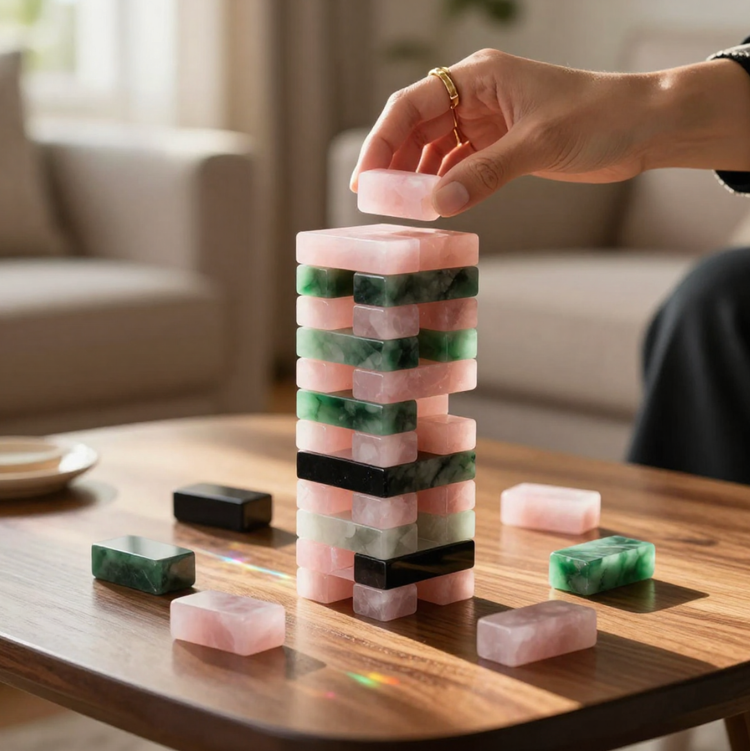How to Handle Conflict with Each Enneagram Type

Ever felt like you're speaking a different language when conflict rears its ugly head? You're not alone! Navigating disagreements can feel like trying to solve a Rubik's Cube blindfolded, especially when you're dealing with different personalities. But what if there was a secret decoder ring for understanding how people react under pressure? Enter the Enneagram, your new best friend for turning heated moments into harmonious resolutions.
The Enneagram isn't just a personality test; it's a map to understanding core motivations, fears, and, yep, how we tend to tangle during conflict. Knowing someone's type (or even your own!) can equip you with the super-power to approach sticky situations with empathy and strategy. Think of it as your emotional toolkit for dodging drama and embracing understanding. Ready to become a conflict-resolution ninja? Let's dive in!
Curious about your core motivations? Chat with Celeste to better understand your Enneagram type.
Your Enneagram Conflict Playbook:
- Type 1: The Reformer (The Perfectionist with a Plan)
They value integrity and correctness. During conflict, they often get critical or righteous. To resolve: Acknowledge their principles, stay calm, and focus on fair solutions. Avoid blaming; they'll double down on being "right." Think Captain America – always striving for justice! - Type 2: The Helper (The Giver Who Needs to Be Needed)
They want to be loved and appreciated. Conflict can make them feel unloved or taken for granted. To resolve: Express appreciation and reassure them of their value. Be direct but gentle; avoid making them feel selfish for having needs. They're like the supportive best friend, Monica Geller, who just wants to make sure everyone is okay. - Type 3: The Achiever (The Performer Who Hates Failure)
They're driven by success and image. Conflict can make them feel like a failure or challenged. To resolve: Focus on facts and mutual goals. Appeal to their desire for efficiency and positive outcomes. Don't attack their competence. Think Leslie Knope, always wanting to be the best and win! - Type 4: The Individualist (The Romantic Who Craves Authenticity)
They seek unique identity and meaning. Conflict can make them feel misunderstood or dismissed. To resolve: Validate their feelings and listen empathetically. Acknowledge their unique perspective. Avoid trivializing their emotions. They’re like an angsty artist from a indie film, deep and dramatic. - Type 5: The Investigator (The Observer Who Needs Space)
They value knowledge and independence. Conflict can overwhelm them, leading them to withdraw. To resolve: Give them space to process. Present information logically and calmly. Avoid emotional demands or overwhelming them with intensity. They're basically the human embodiment of the "thinking" emoji. - Type 6: The Loyalist (The Questioner Who Seeks Security)
They value security and preparedness. Conflict can trigger anxiety and suspicion. To resolve: Be trustworthy, clear, and consistent. Reassure them of your intentions and commitment. Avoid surprises or ambiguity. Think Ron Weasley, always a little bit worried but fiercely loyal to his friends. - Type 7: The Enthusiast (The Adventurer Who Avoids Pain)
They seek pleasure and excitement. Conflict can feel restrictive or unpleasant, leading them to deflect. To resolve: Keep things light and focus on future positive outcomes. Give them options. Avoid dwelling on negativity; help them see the silver lining. They're the human equivalent of a puppy, always looking for the next fun thing. - Type 8: The Challenger (The Protector Who Hates Control)
They value strength and control. Conflict can make them feel vulnerable or controlled, leading to confrontation. To resolve: Be direct, stand your ground respectfully, and focus on fairness. Avoid appearing weak or manipulative. They're basically a dragon, powerful and protective, so don't try to cage them. - Type 9: The Peacemaker (The Harmonizer Who Hates Discord)
They value peace and harmony. Conflict can make them shut down or merge with others' opinions. To resolve: Encourage them to express their own needs. Create a calm, non-confrontational environment. Avoid forcing a quick decision. They're like a gentle cloud, wanting everything to be calm and pleasant.
So, the next time you're facing a skirmish, remember your Enneagram insights! Understanding these core motivations isn't about excusing behavior, but about building bridges and fostering deeper connections. You've got this – go forth and conquer conflict with compassion and cleverness!


